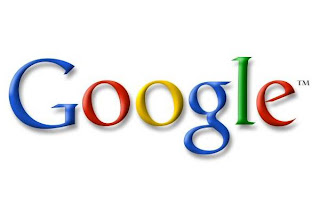There are many different ways of paid search engine marketing or search engine advertising (SEA). The three biggest are
- Pay per Click (CPC or PPC)
- Pay per Mille (CPM or PPM)
- Pay per Action (CPA or PPA)
There is one thing they all have in common: you have to pay to get your ad showed. A paid ad campaign can be a valuable way to amplify or complement your natural search engine campaign.
There are several advantages of using paid ad campaigns
- You can test new products relatively quick, you don't have to wait till they reach top-positions to test if the product or websites catches on.
- Paid search engine ads have the advantage of being able to choose the keywords you want to be found on.
- You can promote temporary campaigns, when the campaign is done you can easily remove the ads.
- You can customize the uptime of your ads very precisely (example: on week days or on the weekends)
Pay per Click
With the pay per click system you pay according to the performance of the ad. You don't pay just to get added to some list or webpage like with PPI (Pay per Inclusion). You pay for every click someone has made on one of your ads. Google Adwords, Yahoo! Search Marketing and MSN adCenter are the most known PPC-offerers at the moment.
How does it work
Basically it goes a little something like this:
- You design your ad, this mostly consists of a title, a short description and an url to which the ad will direct the clickers (potential customers).
- You choose the search keywords/terms you want your ad to show up to.
- You choose the region and language in which you want your ad to be shown.
- You decide how much you are willing to pay for every lead you get via these ads.
- You set a maximum amount of money you are willing to spend every day
- The amount of money you are willing to spend for each lead compared to the amount of money other competitors (for these search terms) are willing to pay will decide the position your ad will be appointed in the list of paid search results or ads.
- You don't pay anything if the ad or paid search result doesn't get clicked
- Your ad wil be displayed under some kind of section, usually 'sponsored links' or 'sponsors' or 'paid results' until your daily set budget is depleted.
Postive about CPC:
- Maximal controle: you decide the maximum budget, you decide the maximum cost per click, you decided the ad placement.
- Quick entry: in most cases your ads can be up in a matter of minutes.
- Results or ROI (Return on Investments) are easily measured.
Negative about CPC:
- There is a big chance a click fraud: of course there is an easy way of committing fraud. You have the ability to raise the cost for your competitors by clicking on the paid ads and not buying anything from them.
- It can take up a lot of time to monitor all your ad campaigns.
- It can get pretty expansive.
Pay per Mille
Pay per mille is a form of advertising where you have to pay to get your ad shown. Mille is a french word which stands for thousand. Usually the prices for CPM are measured by a thousand views. For example the CPM rate could be 10 dollars, you would have to pay 10 dollars if your ad got viewed a thousand times. Traditionally this form of advertising was used for banners, say you would buy banner space for 100.000 impressions for a CPM rate of 10 dollars you would have to pay 1.000 dollars.
Positive about CPM:
- You pay a pre-determed amount of money for the amount of views. Not per click
- CPM usually consists of banners, which would mean you would have more visual room to display better graphics in your ad.
Negative about CPM:
- It is less related to actions of viewers, if a users refreshes a pages 3 times he takes up 3 impressions.
- Your ads will not display in search results but in ad networks.
Pay per Action
Pay per action got introduced by Google mid 2007. You set the goal (desirable conversion) and what you are willing to pay for letting users achieve this. This form of advertising is the ultimate form of paying for performance or achievement. For example: you pay for customers to opt-in on a newsletter or to leave behind there zip-code.
Positive about CPA:
- It lowers the risk, you only pay if the users has achieved his/your goal.
- Because of the last reason you could get a higher ROI and lower costs.
Negative about CPA:
- Obviously the prices are higher then those of CPC.
- The ads will only appear in ad networks.
- Not all ad company's support this kind of advertising.
So there you go, this information should give you an idea of how to utilize paid advertising in search results and in ad-networks. These are the basics to Search Engine Advertising (SEA), very important stuff to keep in mind when are starting a new campaign.






